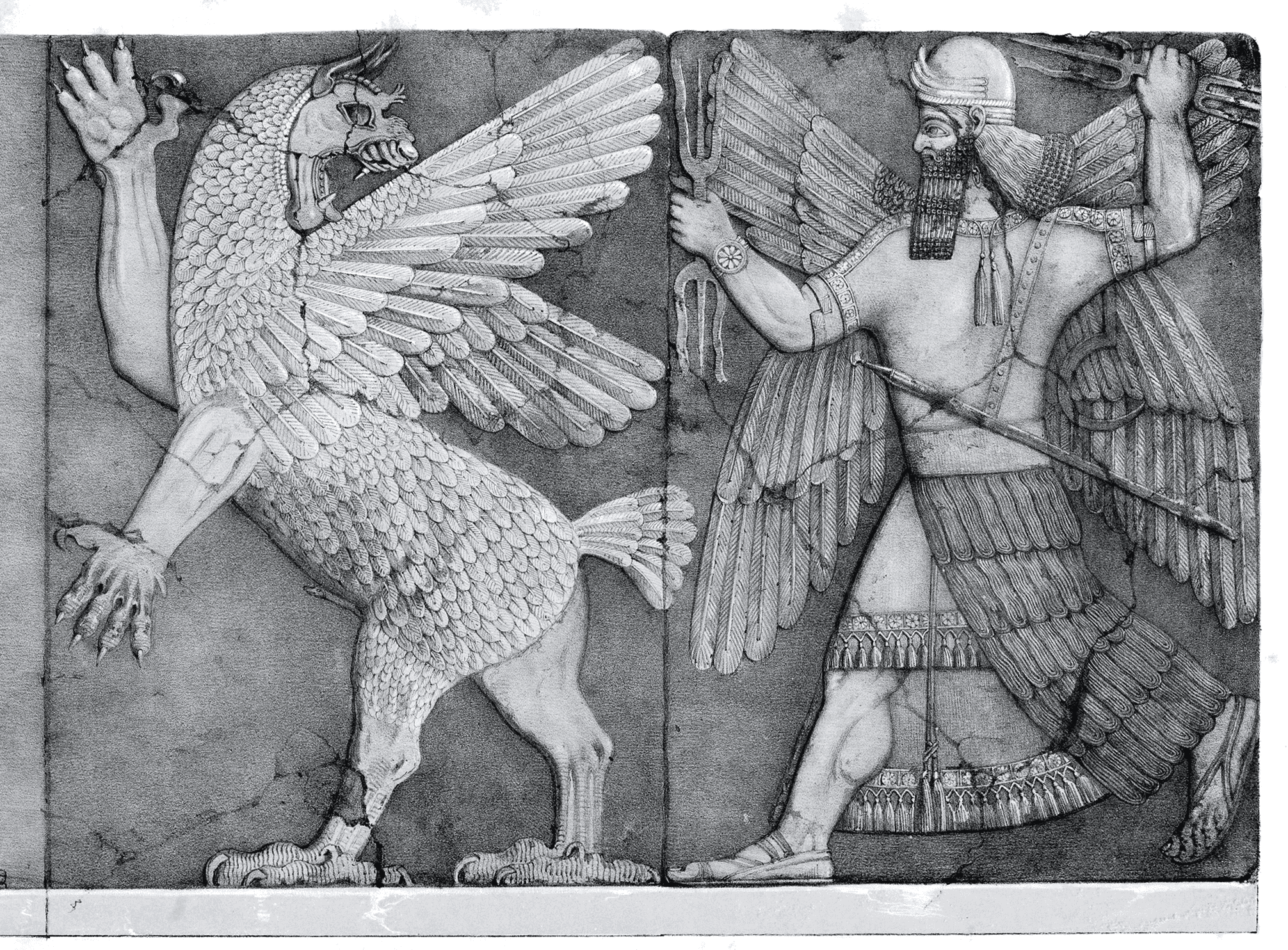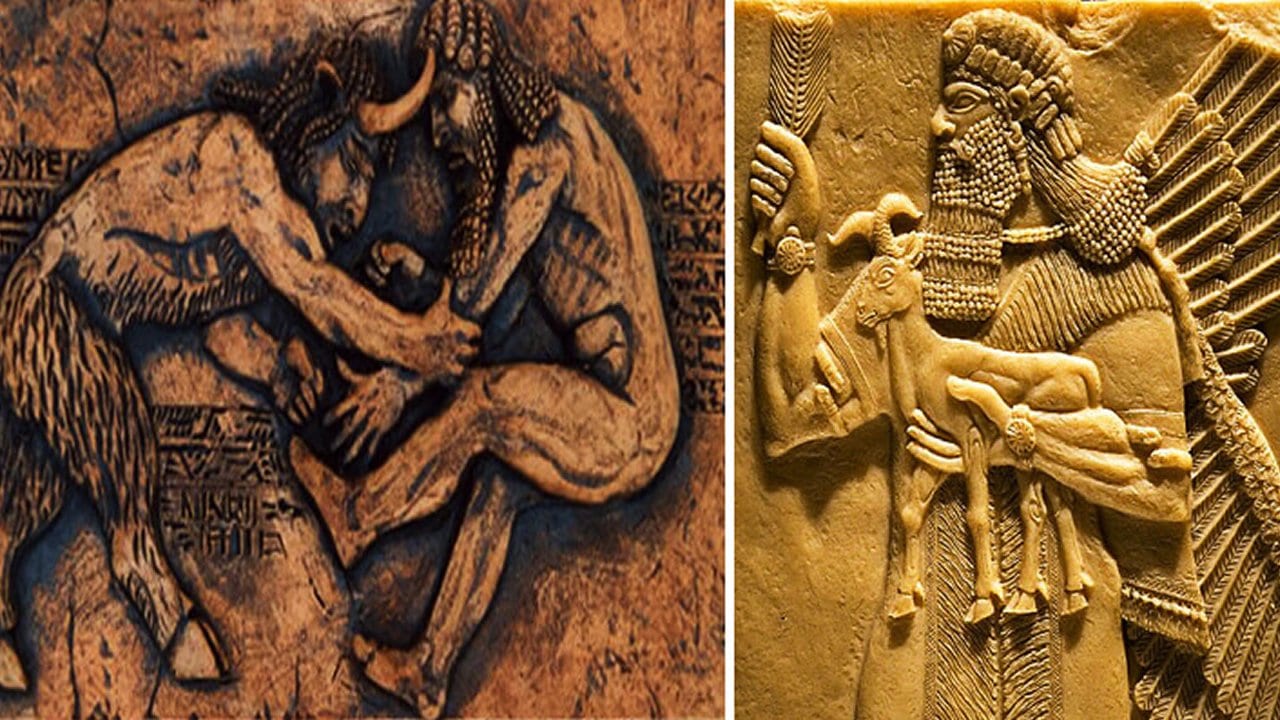
My first contact with the Epic of Gilgamesh it was when he was in his early twenties. I read it on the recommendation of a friend, specifically the edition of the translator, poet, and writer Stephen mitchell, which I highly recommend. Little did I imagine how much I was going to like this story, so much so that I regretted having thought it could be a dense or boring poem.
The Lapis Lazuli Tablet
«He who has seen everything, who has experienced all the emotions, from joy to despair, has received the mercy of seeing into the great mystery, the secret places, of the first days before the Flood. He has traveled to the ends of the world and has returned, exhausted but whole. He has engraved his exploits on stone stelae, he has re-erected the holy temple of Eanna, as well as the thick walls of Uruk, a city with which no other on earth can compare. See how its ramparts shine like copper in the sun. Climb the stone staircase, older than the mind can imagine; Arrive at the temple of Eanna, consecrated to Ishtar, a temple whose size and beauty have not been equaled by any king; he walks on the wall of Uruk, draws its perimeter around the city, scrutinizes its superb foundations, examines its brickwork, how clever it is !; take note of the lands that surround: its palm trees, its gardens, its orchards, its splendid palaces and temples, its workshops and markets, its houses, its squares. Find his cornerstone and, below it, the copper chest that bears his name. Open it. Lift its lid. Take out the lapis lazuli tablet. Read how Gilgamesh suffered all and overcame all. "
Anonymous, "The Epic of Gilgamesh" (prose version by Stephen Mitchell).
The history of Gilgamesh has a circular structure: the story begins, and ends, at the same point, like a kind of ouroboros that bites its own tail. A very interesting detail is that from the first lines it involves the reader, as if holding the lapis lazuli tablet recounting the deeds of the king of kings. These verses are a declaration of intentions: "read how Gilgamesh suffered all and overcame all." A vitalist message, which is related to the concept of Nietzschean will to power thousands of years before the German philosopher was born.
The argument of the EpGilgamesh opeya It is not complicated, and it can be divided into two parts. In the first, Gilgamesh seeks glory, and relates his enmity with Enkidu (of which he later becomes an inseparable friend), a character who represents the wild in front of Gilgamesh, who represents civilization. His exploits are also shown, such as the epic combat against the monster Humbaba, or his disputes with the goddess Ishtar and her Celestial Bull.

The second part, in which Gilgamesh seeks immortality, put the epic aside and take a dramatic turn. Enkidu falls ill and dies, which destroys our protagonist to unsuspected limits, because he loved him as much as he loved himself. The king realizes for the first time that his flesh is perishable, and that one day he will have to die too. Therefore, he embarks on a journey in pursuit of immortality, which is bitter and devoid of any happiness.
Words full of power
«If I fall, I will have achieved fame.
People will say: Gilgamesh fell
fighting against the fierce Humbaba! ...
I am determined to enter the cedar forest. "Anonymous, "The Epic of Gilgamesh."
The great virtue of this epic poem is that it is incredibly modern. And it's not something I say lightly, it really does. The way he treats the friendship relationship between Enkidu and Gilgamesh, which from rivals become almost brothers, can be seen in numerous stories and artistic and literary sagas of our days.
On the other hand, the theme of the passage of time, of death, and of the anguish that it generates in the individual, only before his own mortality, is a subject that seems more typical of an existentialist novel of our century, than of a poem gestated in 2.500 a. C. in Mesopotamia. For these reasons, and many others, I highly recommend reading the Epic of Gilgamesh.